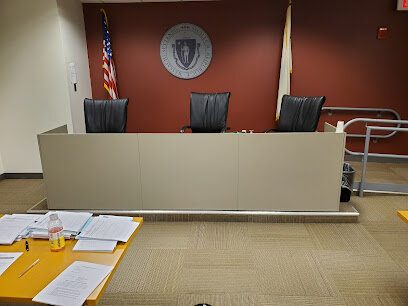Best Criminal Defense Lawyers in Connecticut
Share your needs with us, get contacted by law firms.
Free. Takes 2 min.
Or refine your search by selecting a city:
List of the best lawyers in Connecticut, United States

United States Criminal Defense Legal Questions answered by Lawyers
Browse our 1 legal question about Criminal Defense in United States and read the lawyer answers, or ask your own questions for free.
- Do you prosecute local Philippina for violating ESTAFA laws
- I was scammed by a lady presenting herself as my girlfriend.
-
Lawyer answer by mohammad mehdi ghanbari
HelloBased on the laws of the Philippines, you can file a criminal complaint against the person who scammed you for violating the laws on Estafa (swindling). Estafa is a criminal offense that involves defrauding another person of money or property...
Read full answer
United States Criminal Defense Legal Articles
Browse our 3 legal articles about Criminal Defense in United States written by expert lawyers.
- Clearing Your Record in Texas: 2026 Expunction Rules for US
- Criminal defense in the United States protects your rights from the moment of investigation through trial, sentencing, and appeals, and the stakes can include jail, fines, immigration consequences, and your future job prospects. You always have key constitutional rights: to remain silent, to have a lawyer, to be free from... Read more →
- Texas DWI Laws 2026 First Offense Penalties
- If you are arrested in the United States, you have the right to remain silent, the right to a lawyer, and the right to a fair trial - use those rights from the start. Criminal cases move quickly at the beginning: after arrest come booking, bail, your first court appearance,... Read more →
- Texas Bail Reform 2026: Why Bonds Are Harder to Secure in US
- If your loved one has just been arrested, move fast: confirm the exact charges, find out the bond amount, and contact a criminal defense lawyer immediately. In the United States, you have core rights at every stage - to remain silent, to an attorney, to reasonable bail (subject to exceptions),... Read more →
About Criminal Defense Law in Connecticut, United States
Criminal defense law in Connecticut involves representing individuals who have been charged with criminal offenses under both state and federal law. The primary goal of a criminal defense attorney is to protect the rights of the accused, ensure a fair legal process, and seek the most favorable outcome, which may include dismissal, a reduction of charges, or an acquittal. Connecticut criminal laws cover a wide range of offenses from misdemeanors to serious felonies, each carrying potential penalties such as fines, imprisonment, probation, or community service.
Why You May Need a Lawyer
There are many situations in which hiring a criminal defense lawyer is essential in Connecticut. Common reasons include:
- Being arrested or investigated for any crime, such as DUI, assault, theft, drug crimes, domestic violence, or white-collar crimes
- Receiving a summons or notice to appear in court for a criminal matter
- Facing the risk of jail time, a criminal record, or severe fines
- Wanting guidance on plea bargains, diversion programs, or sentencing options
- Challenging search warrants, evidence, or police procedures
- Seeking to appeal a conviction or expunge a criminal record
Legal representation ensures your rights are protected at every stage of the process and can make a significant difference in the outcome of your case.
Local Laws Overview
Connecticut’s criminal justice system is known for having specific statutes and procedures that can differ from other states. Here are some key points relevant to criminal defense in Connecticut:
- The state divides offenses into misdemeanors and felonies, categorized by classes that determine the severity of penalties
- Certain crimes, such as DUI or domestic violence, have mandatory arrest and sentencing provisions
- Connecticut has a youthful offender program for eligible defendants under age 18, offering rehabilitation rather than incarceration
- The state uses a “pretrial diversion” system for some non-violent and first-time offenders, which can lead to charges being dropped upon successful completion
- There are strict rules for evidence collection and police conduct that, if violated, can result in dismissal of charges or exclusion of evidence
- Connecticut has abolished the death penalty, though life imprisonment remains for the most serious crimes
- Criminal records can, in some circumstances, be erased through expungement or pardon
Understanding these laws is crucial for mounting an effective defense.
Frequently Asked Questions
What should I do if I am arrested in Connecticut?
If you are arrested, remain calm and do not resist. Assert your right to remain silent and ask to speak with a lawyer immediately before answering any questions.
Can I speak to a lawyer before talking to the police?
Yes, you have the right to consult with an attorney before any questioning by law enforcement. Exercising this right is highly recommended.
What are the potential consequences of a criminal conviction in Connecticut?
Consequences can include jail or prison time, probation, fines, community service, loss of driving privileges, and a permanent criminal record.
Is it possible to have criminal charges dropped or reduced?
Yes, in many cases, charges may be reduced or dismissed based on lack of evidence, violations of your rights, or through negotiation and pretrial programs.
What is the difference between a misdemeanor and a felony?
Misdemeanors are less serious crimes usually carrying up to one year in jail, while felonies are more serious and may result in longer prison sentences.
Do I need a lawyer for a minor offense or first-time arrest?
It is always wise to consult with a lawyer, even for minor offenses or first-time arrests, as they can have long-term impacts on your life and record.
Can I represent myself in a criminal case?
While you have the right to represent yourself, criminal law is complex, and having an experienced attorney greatly increases your chances for a favorable outcome.
What is a plea bargain and should I consider one?
A plea bargain is an agreement to plead guilty to a lesser charge or receive a lighter sentence. Whether to accept a plea bargain depends on the specifics of your case and should be discussed with your lawyer.
What happens if I miss a court date?
Missing a court date can result in a warrant for your arrest and additional charges. Contact your attorney immediately if you miss or expect to miss a court appearance.
Can my criminal record be expunged in Connecticut?
Some criminal records can be erased through a pardon or expungement process, especially for certain non-violent or old offenses. A lawyer can advise on your eligibility and the process.
Additional Resources
If you need further information or assistance, here are some helpful resources in Connecticut:
- Connecticut Judicial Branch - Information on court procedures, forms, and criminal case lookup
- Connecticut Division of Public Defender Services - Provides legal representation to individuals who cannot afford private attorneys
- Connecticut Bar Association - Can help you find licensed defense attorneys in your area
- State of Connecticut Office of Victim Services - Support for crime victims
- Connecticut State Police - For records requests and public information
Next Steps
If you or someone you know is facing criminal charges in Connecticut, take the following steps:
- Do not discuss your case with anyone except your attorney
- Consult a qualified Connecticut criminal defense lawyer as soon as possible to review your options
- Gather any relevant documents or evidence that may help your defense
- Follow all court instructions and attend every scheduled hearing
- Ask your attorney to explain each step of the process so you understand your rights and choices
Taking immediate and informed action is critical to achieving the best possible result in your criminal case.
Lawzana helps you find the best lawyers and law firms in Connecticut through a curated and pre-screened list of qualified legal professionals. Our platform offers rankings and detailed profiles of attorneys and law firms, allowing you to compare based on practice areas, including Criminal Defense, experience, and client feedback.
Each profile includes a description of the firm's areas of practice, client reviews, team members and partners, year of establishment, spoken languages, office locations, contact information, social media presence, and any published articles or resources. Most firms on our platform speak English and are experienced in both local and international legal matters.
Get a quote from top-rated law firms in Connecticut, United States — quickly, securely, and without unnecessary hassle.
Disclaimer:
The information provided on this page is for general informational purposes only and does not constitute legal advice. While we strive to ensure the accuracy and relevance of the content, legal information may change over time, and interpretations of the law can vary. You should always consult with a qualified legal professional for advice specific to your situation.
We disclaim all liability for actions taken or not taken based on the content of this page. If you believe any information is incorrect or outdated, please contact us, and we will review and update it where appropriate.
Browse criminal defense law firms by service in Connecticut, United States
Connecticut, United States Attorneys in related practice areas.
Browse criminal defense law firms by city in Connecticut
Refine your search by selecting a city.









